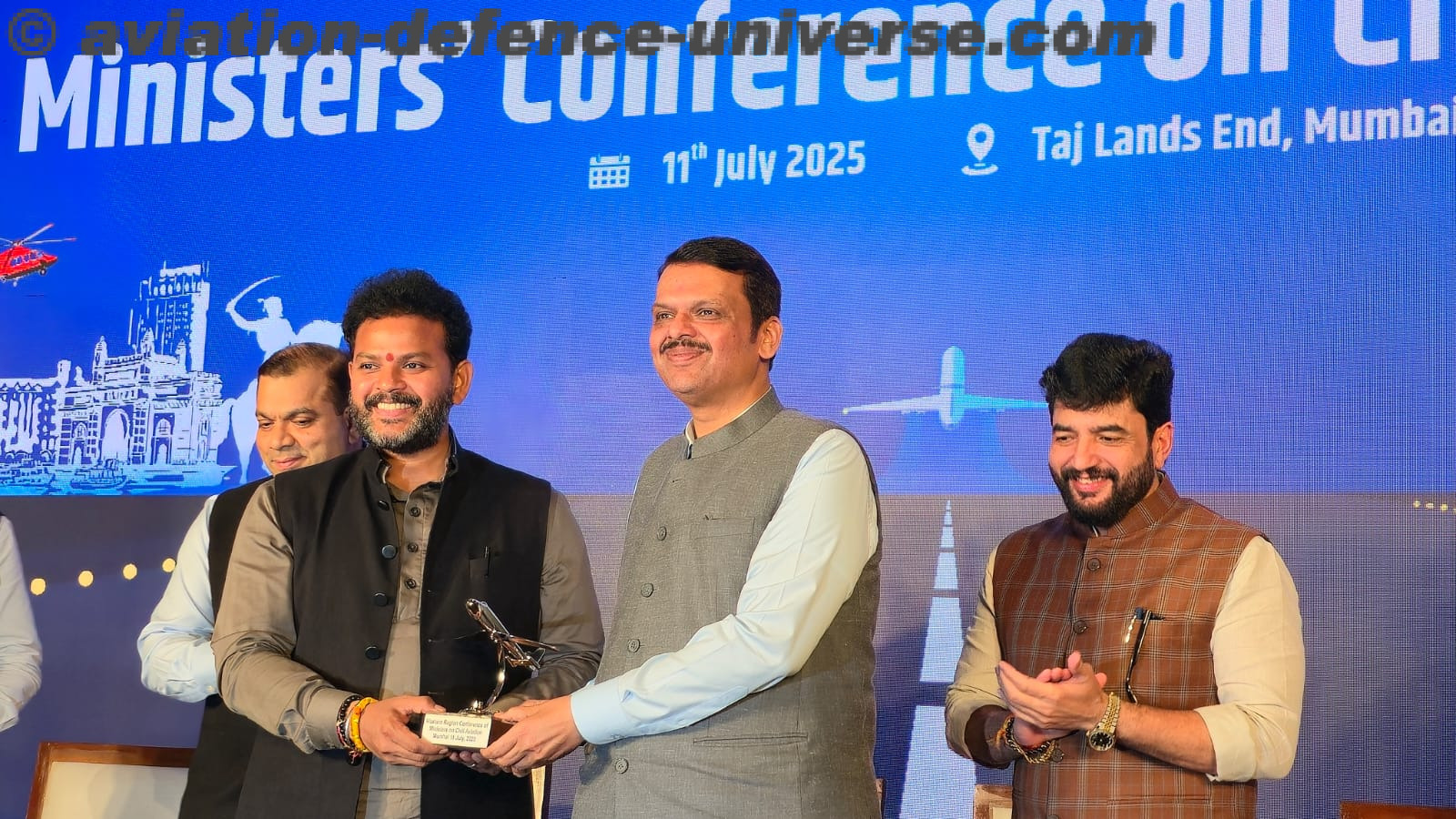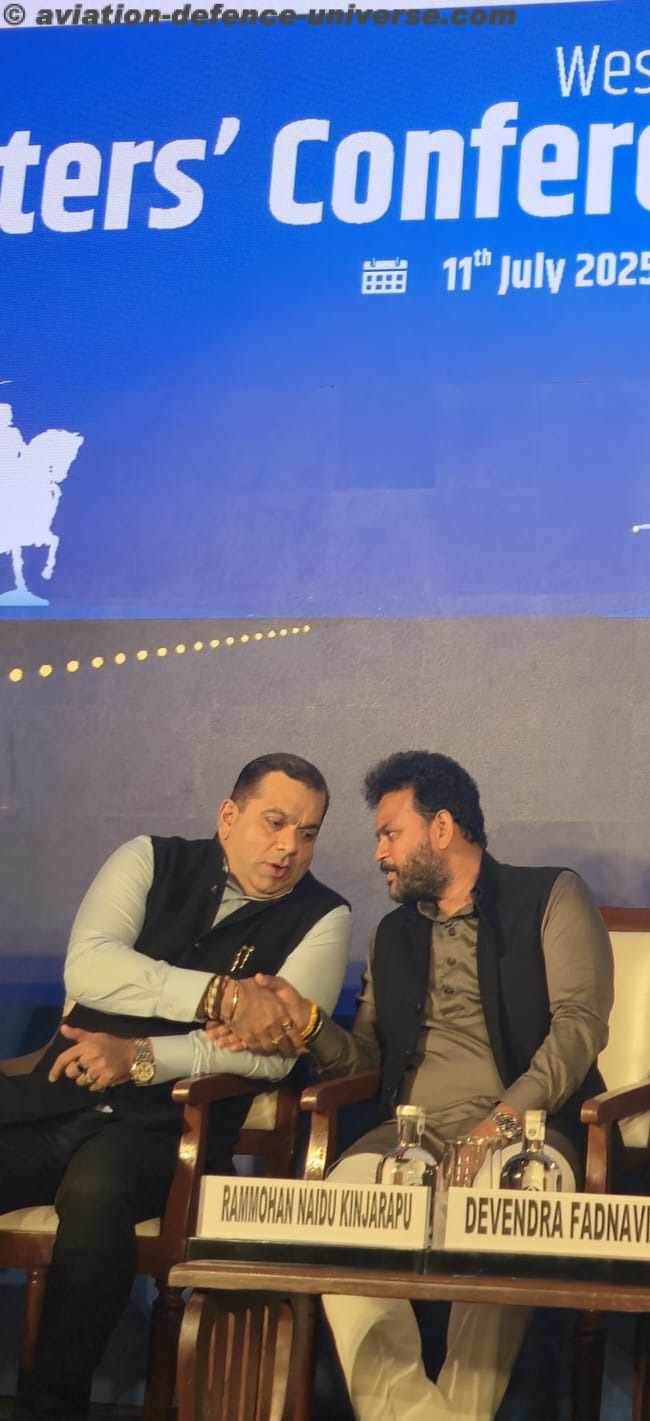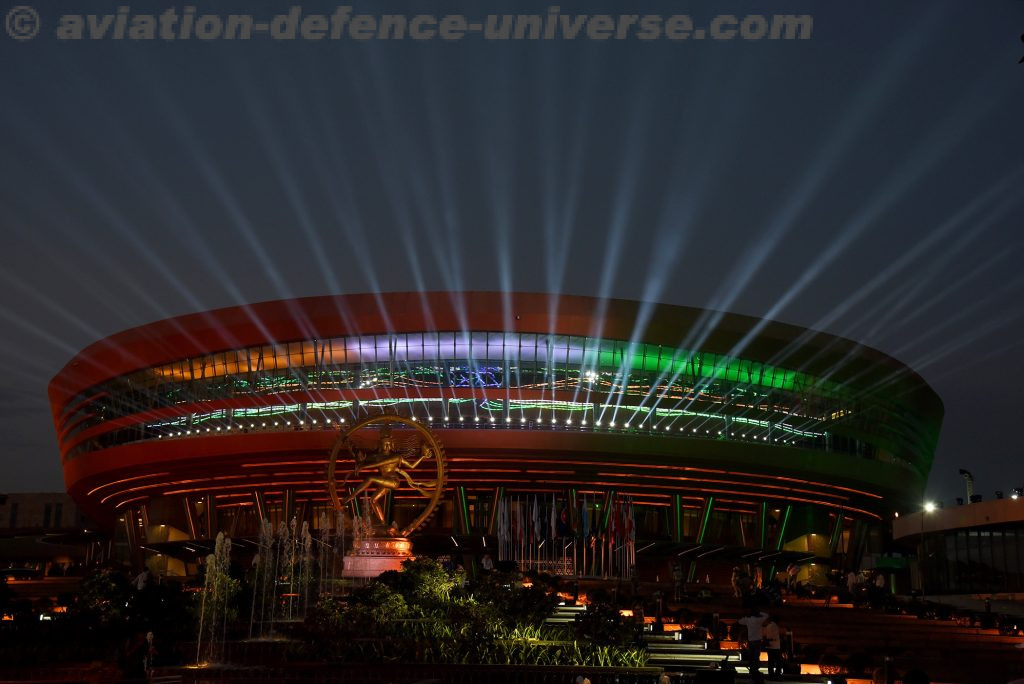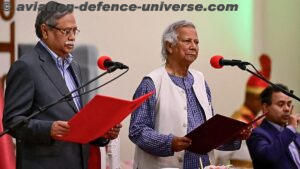By Jai Kumar Verma
New Delhi. 19 September 2023. The G20 presidency’s theme in India was “One Earth, One Family, One Future”. The 18th G20 summit stressed on robust and sustainable growth, emphasis on green development mission, progress in digital infrastructure, technological revolution, stress on women empowerment and urgency of international peace, tranquillity, and harmony. India has raised the voice of Global South. The successful organisation of such mega event has enhanced India’s stature in international arena and its influence on multilateral forums and international organisations also heightened. The world powers have acknowledged that India is a global force and can positively contribute in establishing peace, prosperity, and stability in the world.
 Issuance of Delhi Declaration is a great diplomatic and political success of India. Both the warring groups i.e. Russia and the Western countries agreed for the declaration indicates that there can be a truce and peace can be restored through negotiations. Russia was visibly happy, and its Foreign Minister Sergey Lavrov stated that the G20 “summit has definitely been a success.” He also mentioned that “India did not allow to ‘Ukrainise’ the G20 agenda.” On the other hand, the French President claimed that G20 summit in Delhi proved “isolation of Russia.” He also mentioned that the “overwhelming majority of G20 condemned the war in Ukraine and its impact.” Last year G20 summit was held at Bali in Indonesia and the declaration was much sharper against Russia but as Moscow always stood for Delhi in hour of need, India also helped Russia and the Delhi Declaration though mentioned about peace in Ukraine but did not mention Russian “aggression” or “condemn” Russians for aggression in Ukraine. The declaration mentioned that all countries should “refrain from the threat or use of force to seek territorial acquisition against the territorial integrity and sovereignty or political independence of any state”. The analysts who were expecting that India Russia relations would go downhill as Delhi and Washington are becoming closer because of rising danger from expansionist China, were proved wrong.
Issuance of Delhi Declaration is a great diplomatic and political success of India. Both the warring groups i.e. Russia and the Western countries agreed for the declaration indicates that there can be a truce and peace can be restored through negotiations. Russia was visibly happy, and its Foreign Minister Sergey Lavrov stated that the G20 “summit has definitely been a success.” He also mentioned that “India did not allow to ‘Ukrainise’ the G20 agenda.” On the other hand, the French President claimed that G20 summit in Delhi proved “isolation of Russia.” He also mentioned that the “overwhelming majority of G20 condemned the war in Ukraine and its impact.” Last year G20 summit was held at Bali in Indonesia and the declaration was much sharper against Russia but as Moscow always stood for Delhi in hour of need, India also helped Russia and the Delhi Declaration though mentioned about peace in Ukraine but did not mention Russian “aggression” or “condemn” Russians for aggression in Ukraine. The declaration mentioned that all countries should “refrain from the threat or use of force to seek territorial acquisition against the territorial integrity and sovereignty or political independence of any state”. The analysts who were expecting that India Russia relations would go downhill as Delhi and Washington are becoming closer because of rising danger from expansionist China, were proved wrong.
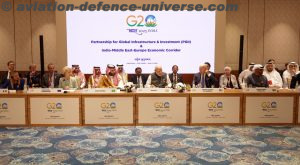 It is a great Indian success that all the participating countries agreed on Delhi declaration, and it was passed unanimously. India forcefully raised the voice of Global South. However, Abdul Basit a retired Pakistani diplomat who served as the High Commissioner of Pakistan to India tweeted that “Last year it was Indonesia, this year India, next year will be Brazil & so on. What’s so special about India hosting G20 summit? More hype than substance. Even G20 would lose its relevance in years ahead. Proposed corridors linking India to Gulf and Europe will remain pipe dreams.”
It is a great Indian success that all the participating countries agreed on Delhi declaration, and it was passed unanimously. India forcefully raised the voice of Global South. However, Abdul Basit a retired Pakistani diplomat who served as the High Commissioner of Pakistan to India tweeted that “Last year it was Indonesia, this year India, next year will be Brazil & so on. What’s so special about India hosting G20 summit? More hype than substance. Even G20 would lose its relevance in years ahead. Proposed corridors linking India to Gulf and Europe will remain pipe dreams.”
In reality launching of India-Middle East-Europe Economic Corridor is a great success of G20. Prime Minister Modi termed it as a “historic agreement”. Modi said that “This will be an effective mode of economic integration between India, West Asia, and Europe, in the time to come.” President Biden stated that “Today, I’m proud to announce that we have finalized a historic agreement for a new India Middle East Europe Economic Corridor. As a key part of this corridor, we are going to invest in ships and rail that extends from India, all over Europe connected by the UAE, Saudi Arabia, Jordan, and Israel.”
The corridor would first connect Mundra port of India to the Fujairah port of UAE. It will use railroad via Saudi Arabia and Jordan and then to Haifa port of Israel. Under this project the connectivity would increase between India, the United Arab Emirates, Saudi Arabia, Jordon, Israel, and the European Union. The project is a direct challenge to China’s Belt-Road Initiative (BRI). China is going to celebrate the 10th anniversary of BRI which is considered as a debt trap by several countries as they are not in a position to repay the debt. Chinese economy is also facing trouble because large number of countries where mega projects were made under BRI have showed their inability to repay the debt.
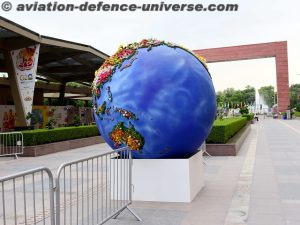 Besides boosting the trade, the corridor would also improve digital connectivity between the members states. According to Saudi Crown Prince Mohammed Bin Salman the total cost of building the corridor is expected to be around $20 billion. Prime Minister Modi also met several world leaders in sidelines of G20 especially US and French Presidents. Modi and Biden both reasserted their support for “a free, open, inclusive and resilient Indo-Pacific” which is a clear and stern message to expansionist China. Both leaders discussed about the agreements pertaining to production of jet engines in India by General Electric and also about the purchase of US drones by India. The joint statement “re-emphasized the shared values of freedom, democracy, human rights, inclusion, pluralism, and equal opportunities for all citizens are critical to the success our countries enjoy and that these values strengthen our relationship”.
Besides boosting the trade, the corridor would also improve digital connectivity between the members states. According to Saudi Crown Prince Mohammed Bin Salman the total cost of building the corridor is expected to be around $20 billion. Prime Minister Modi also met several world leaders in sidelines of G20 especially US and French Presidents. Modi and Biden both reasserted their support for “a free, open, inclusive and resilient Indo-Pacific” which is a clear and stern message to expansionist China. Both leaders discussed about the agreements pertaining to production of jet engines in India by General Electric and also about the purchase of US drones by India. The joint statement “re-emphasized the shared values of freedom, democracy, human rights, inclusion, pluralism, and equal opportunities for all citizens are critical to the success our countries enjoy and that these values strengthen our relationship”.
The meeting between French President Macron and Modi was also important, the joint communique mentioned that “Both leaders reiterated their commitment to strengthen the defence cooperation through partnership in design, development, testing and manufacture of advanced defence technologies and platforms, and expand production in India, including for third countries in Indo-Pacific and beyond. In this context, they also called for early finalisation of the Defence Industrial Roadmap.” The meeting is significant as at present France has emerged as a key defence partner of India. France also agreed about the joint development of a combat aircraft engine as well as engine for Hindustan Aeronautics Limited (HAL) developed Indian Multi Role Helicopter (IMRH).
Nevertheless, Ukraine was unhappy as it felt that the language was mild against Russia in comparison to the language used against Russia in Bali. Chinese President Xi Jinping absented from the meeting as he wanted to relegate the importance of G20 summit under the presidentship of Bharat but Bharat with the active support of United States, European and other countries effectively countered the Chinese move. The G20 summit elevated African Union and it became the full member and now G20 is G21.
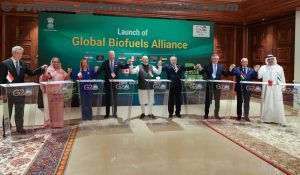 Members agreed to take effective action on climate change and justifiability of debt. China tried to play a spoiler role as it raised the issue of access of semiconductors during the discussion on climate change, but US Security Advisor Jake Sullivan pointed out that it is an unrelated issue. India very forcefully raised the voice of Global South. G20 Sherpa Amitabh Kant very rightly said that the result of G20 made it clear that “India has a huge capacity of bringing the world together and leading the world in developmental and geopolitical issues.”
Members agreed to take effective action on climate change and justifiability of debt. China tried to play a spoiler role as it raised the issue of access of semiconductors during the discussion on climate change, but US Security Advisor Jake Sullivan pointed out that it is an unrelated issue. India very forcefully raised the voice of Global South. G20 Sherpa Amitabh Kant very rightly said that the result of G20 made it clear that “India has a huge capacity of bringing the world together and leading the world in developmental and geopolitical issues.”
Besides other achievements G20 also focused on comprehensive and sustainable economic growth, improvement in health and education facilities. The Delhi declaration gave due importance to artificial intelligence, digital transformation, and use of data for development. The G20 also committed on global food security and providing nutrition to the weaker section. The summit gave utmost importance to environment, climate change, transformation of technology and the issue of digital public infrastructure (DPI). The issue of international taxation is also discussed although it is a complicated subject.
As the world is suffering at the hands of terrorism, much emphasis was laid on the issue of counter terrorism and money laundering. Delhi Declaration denounced all type of terrorism including religious and racist. Terrorism is the biggest threat to global peace and tranquillity. The G20 presidency was significant for India as the world at large realised that India could deliver. India’s economy is fastest growing economy of the developing world. It is expected that India’s growth rate would surpass China. India would be benefitted because of continuing US-China trade war. Not only this several countries of the world feel threatened by aggressive posture of China and are trying to reduce trade relations with China.
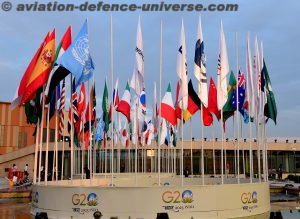 The issuance of Joint Declaration is a success and India-Middle East-Europe Economic Corridor is a direct threat to BRI which is already in trouble. Italy which is the only G7 member which joined BRI has already announced its intention to leave it next month. As Xi has not attended G20, India became the most vocal voice of Global South. India’s influence in African continent has also increased as largest number of African countries have attended this summit. African union became permanent member of G20, and it is a big success of the current G20. The present summit can be termed as first “Green summit” as India promoted climate policies including International Biofuels Alliance. India also mentioned that international banks should reform themselves so that they can promote green funding. India has adopted a very balanced policy so that Western countries should not feel that India is tilting towards Russia or supporting anti-western policies.
The issuance of Joint Declaration is a success and India-Middle East-Europe Economic Corridor is a direct threat to BRI which is already in trouble. Italy which is the only G7 member which joined BRI has already announced its intention to leave it next month. As Xi has not attended G20, India became the most vocal voice of Global South. India’s influence in African continent has also increased as largest number of African countries have attended this summit. African union became permanent member of G20, and it is a big success of the current G20. The present summit can be termed as first “Green summit” as India promoted climate policies including International Biofuels Alliance. India also mentioned that international banks should reform themselves so that they can promote green funding. India has adopted a very balanced policy so that Western countries should not feel that India is tilting towards Russia or supporting anti-western policies.
(Jai Kumar Verma is a Delhi-based strategic analyst and member of United Services Institute of India and The Manohar Parrikar Institute for Defence Studies and Analyses,. The views in the article are solely the author’s. He can be contacted at editor.adu@gmail.com)











